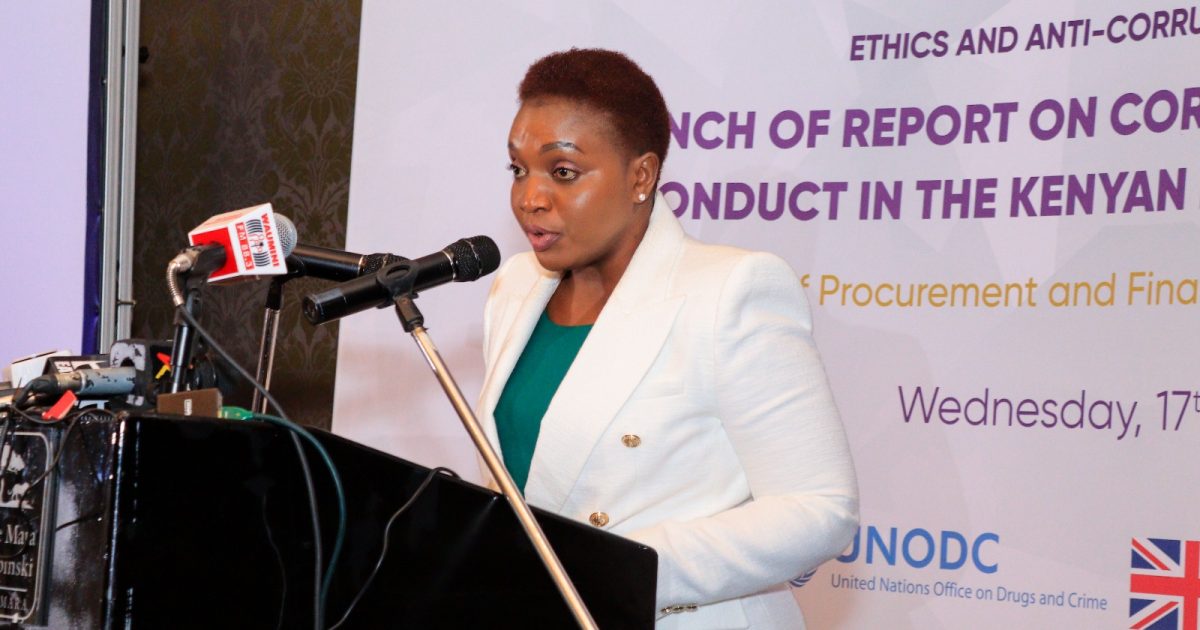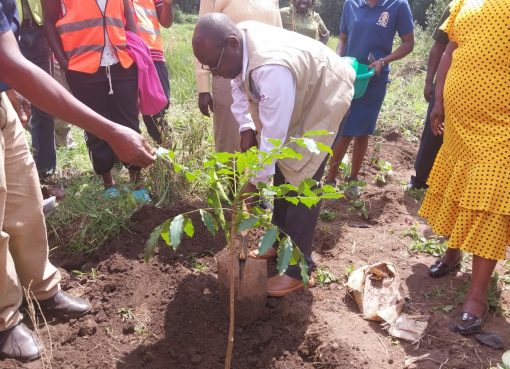The Cabinet recently approved the Conflict-of-Interest Bill, 2023 which has since been forwarded to the National Assembly for further processing, Health Cabinet Secretary Susan Nakhumicha has disclosed.
Nakhumicha said that it is envisaged that if enacted into law, the legislation will address the conflict of interest element raised by Ethics and Anti-Corruption Commission (EACC) in the procurement tenders in various public offices across the country.
Speaking in Nairobi during the launch of the Study Report on Corruption and Unethical Conduct in Procurement and financial Management in Healthcare Projects in Kenya, the CS said that the government, through the Office of the Prime Cabinet Secretary, undertaking robust reforms in the Performance Contracting Framework. This is aimed at addressing accountability deficits hitherto witnessed in the performance of public duty.
“The Government is committed to strengthening oversight agencies such as EACC, Judiciary and Office of the Director of Public Prosecutions in order to more effectively discharge their mandates,” said Nakhumicha.
She highlighted that the automation of government services is one of the notable pillars in President William Ruto’s Administration.
“Indeed, best practice indicates that removal of the human interface in service delivery through adoption of technology is a viable accountability measure.” She said adding that these measures are part of the government’s commitment to good governance, efficiency, effectiveness and responsiveness in the delivery of public services.
The CS commended EACC for moving with speed to commence investigations in the Kenya Medical Supplies Agency (KEMSA) saying that they look forward to a timely completion of the investigations.
“My Ministry is fully aware that corruption is a significant drawback in the efforts to reform Kenya’s healthcare system. Indeed, the latest National Survey on Corruption and Ethics Report released on 30th December 2022 ranks the Ministry of Health second in the institutions perceived as most corrupt. Without doubt, the Report we are launching today corroborates that finding,” explained the CS.
Nakhumicha said that Kenya cannot achieve its national goals unless the men and women who are entrusted with public office uphold high standards of integrity.
“For this reason, I expect all agencies under the Ministry of Health to review their internal controls in line with the recommendations given by EACC in the Report we are launching today,” said the CS.
The Ethics and Anti-Corruption Chairperson Dr. David Oginde emphasized on the importance of public participation in counties as this was seen as a viable solution to reduce the magnitude of corruption in the country.
Oginde stated that EACC would partner with stakeholders so that Kenya could move into the league of developed countries.
He also emphasized that malpractices like cost inflation, undue influence, favoritism in awarding tenders and missing documents as some of the issues which have been a major drawback in the health ministry.
The United Nations Office of Drugs and Crime (UNODC) regional representative and Head of Mission for Eastern Africa, Neil Walsh remarked that corruption is a global threat with a global presence that affects millions of people around the world particularly in developing countries.
By Susan Wanjiru and Daisy Masinde




